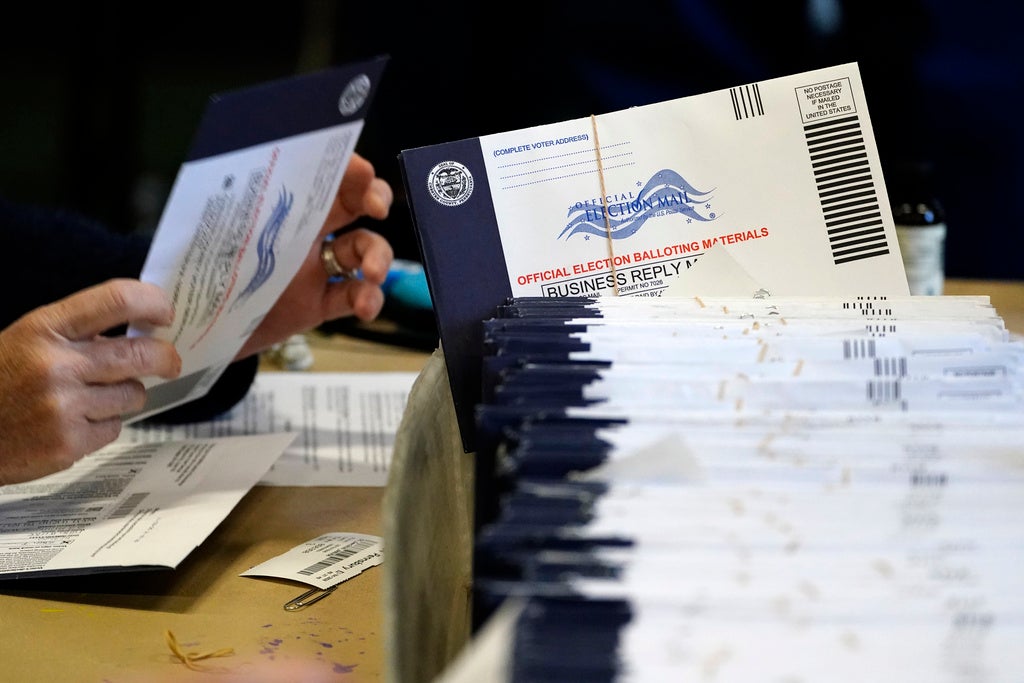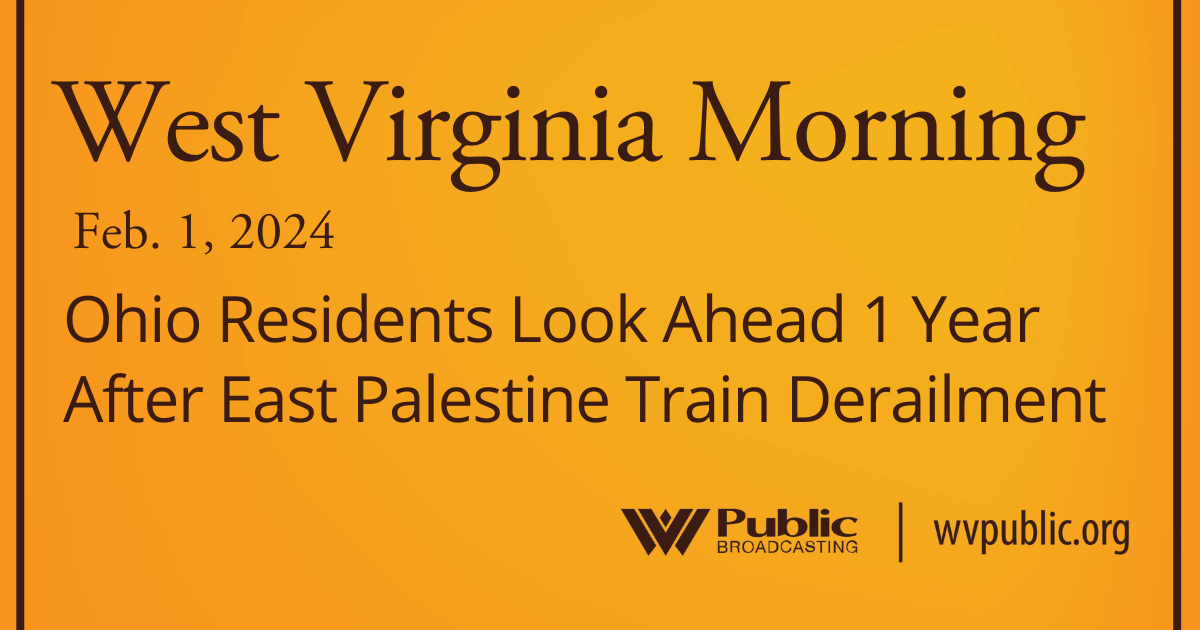Pennsylvania
CSX freight train derails in Whitemarsh Township; no known hazards

Views from Chopper 6 showed as many as 15 to 20 cars off the tracks.
Monday, July 17, 2023 11:45AM
WHITEMARSH TWP., Pennsylvania (WPVI) — A CSX freight train derailed in Whitemarsh Township, Pennsylvania on Monday morning.
According to officials, the crash happened at about 4:50 a.m. near the intersection of Stenton Avenue and Joshua Road.
The train was operating on Norfolk Southern tracks.
Views from Chopper 6 showed as many as 15 to 20 cars off the tracks.
Officials said precautionary evacuations occurred for the residents and businesses closest to the scene.
There were no reports of any hazardous materials leaking from the train cars.
“As of now, the only thing that is leaking from any of the rail cars involved, is silicone pellets which pose no risk to the community,” police said.
There are no reported injuries and no known hazard to the public.
The cause of the derailment remains under investigation.
Copyright © 2023 WPVI-TV. All Rights Reserved.

Pennsylvania
How did Pennsylvania counties spend opioid settlement money?

Spotlight PA is an independent, nonpartisan, and nonprofit newsroom producing investigative and public-service journalism that holds power to account and drives positive change in Pennsylvania. Sign up for our free newsletters.
HARRISBURG — Records obtained by Spotlight PA and WESA offer the most comprehensive public accounting to date of how counties across the state have used tens of millions of dollars they received in opioid settlement money.
The state’s billion-dollar opioid windfall has brought hope to a state where thousands of people each year die from drug overdoses. It’s also brought conflict about the best way to use the money.
The spending reports — which Spotlight PA and WESA are still analyzing — show a wide range of strategies. They offer insight into the wide reach of the opioid epidemic, highlighting the impact on neighborhoods, jails, child welfare programs, and a variety of local agencies.
In central Pennsylvania, Cumberland and Perry County officials both indicated in their reports that their spending decisions are influenced by the threat of litigation.
Their reports said that “due to recent lawsuits county jails are now faced with a new unfunded mandate to provide access to all three” federally approved medications for opioid use disorder. Cumberland County’s total amount spent or committed for that treatment program was about $586,000, while rural Perry County’s was $105,000.
Philadelphia reported spending or committing $7.5 million to support residents in the Kensington area of the city, where the report said people “live in a state of constant trauma due to 24 hour open-air drug market.” The city’s report said this trauma “significantly increases Kensington residents’ risks related to development of substance use disorder.”
As part of the program, funds were dedicated to improvements in local schools and parks, as well as home repair, rent relief, and eviction prevention, according to the report. The city made the case that its Kensington plans most closely match the broad settlement strategy of “Prevent Misuse of Opioids.”
In the Philly suburbs, Chester County officials reported spending or committing the funds to a variety of programs. A relatively small amount of the county’s allotment — about $1,800 — was committed to Project Sticker Shock, which uses stickers to warn people that it’s illegal to provide alcohol to anyone under age 21. In response to questions from Spotlight PA and WESA, the county defended using opioid settlement money for that purpose by saying, “underage drinking is a gateway to opiate use.”
Shane Dunlap / Tribune-Review
Meanwhile, some counties reported spending no opioid money by the end of 2023, including rural Greene County in southwestern Pennsylvania. The county reported receiving about $288,000.
“We just have not found a project yet to expend those dollars,” Betsy McClure, vice chair of the county’s three-member Board of Commissioners, told WESA and Spotlight PA.
The news organizations obtained the records by filing requests under the state’s Right-to-Know Law with all 67 counties in the state, as well as 10 county district attorney offices that were eligible to receive the money based on their role in litigation.
In total, the news organizations received and publicly posted spending reports for more than 60 counties, the city of Philadelphia, and eight county district attorney offices, as of April 30. Some agencies said they didn’t possess the reports. Bucks County attributed the problem “to an apparent technical glitch.”
Counties had to file these reports by the middle of March with the Pennsylvania Opioid Misuse and Addiction Abatement Trust, a 13-member oversight board with the power to withhold and cut funding if it determines counties spent the money inappropriately. This is the first time counties had to file these reports, which cover spending decisions made in 2022 and 2023.
In order to receive the money, counties had to agree to use it in ways that are consistent with a settlement document called Exhibit E. The exhibit contains a range of recommended and approved strategies for treatment, prevention, and responding to the epidemic.
Cameron and Schuylkill Counties initially denied open records requests from Spotlight PA, saying the trust had yet to determine whether the spending described in their reports complied with the requirements of the opioid settlements. After an appeal to the state Office of Open Records, Cameron provided its report. The news organization’s appeal of Schuylkill’s denial was pending as of April 30.
Earlier this year, members of the oversight board approved a plan to review these spending reports in secret committee meetings, despite a court order requiring that the trust follow the state’s open meetings law. The trust says “additional review” will take place at public meetings scheduled for May 2 and June 20.
The trust recently published a summary of reported spending by category, but that information does not identify specific counties or other local agencies.
While county officials wait to hear if the trust will publicly approve their strategies, people like Cathleen Palm are reviewing the available records to learn about counties’ decisions.
The Berks County resident is the founder of the Center for Children’s Justice, which advocates for child protection and family issues. She said she believes the reports can help advocates with limited resources influence the process going forward.
“Because you guys are doing the hard work, tracking them down, putting them in a central spot, we then have the benefit of being able to look and see where counties are spending money on behalf of children and families,” Palm told Spotlight PA and WESA.
While the news organizations are still analyzing the records, here are some of the interesting uses and issues they have found so far.
Medication in jail
In 2022, officials with the Pennsylvania Institutional Law Project reported people with opioid use disorder face many barriers to accessing treatment if they are arrested and booked at county jails across the state.
Some jails didn’t offer any of the federally approved medications for opioid use disorder, while others limited what they offered or who they offered it to, according to their findings. A lack of access to these medications and the trauma of incarceration for people with opioid use disorder “further increases the likelihood of opioid overdose risk after release,” the group’s report said.
These federally approved medications — methadone, buprenorphine, and naltrexone — have widespread support in the medical community.
The opioid settlement spending reports obtained by Spotlight PA and WESA show that several counties dedicate their funds to medication-assisted treatment programs at their jails. Pennsylvania Institutional Law Project staff attorney Sarah Bleiberg Bellos sees this as a “really positive step.”
“There’s a huge number of people who are in our state’s jails that have opioid use disorder, and it is a really crucial time to be treating that disease,” Bellos told Spotlight PA and WESA.
Allegheny County also reported funding medication-assisted treatment at its jail, and a spokesperson told Spotlight PA and WESA that it is working on a phased-in expansion.
Last November, the U.S. Department of Justice announced it had reached a three-year agreement with Allegheny County regarding access to these medications. The county agreed to offer any federally approved medication for opioid use disorder to all individuals booked into the jail, if a qualified medical provider determines the treatment is medically appropriate, according to a copy of the agreement made public by the Justice Department.
In the reports for Perry and Cumberland Counties, both said medication-assisted treatment at their respective jails was the first priority for local leaders because of lawsuits and the “high risk for an overdose upon return to the community” for incarcerated people with opioid use disorder. Officials in each county said the lawsuits their reports referred to didn’t involve their county.
Other counties whose reports indicated they dedicated settlement funds to similar treatment programs for people in jail include Butler, Clearfield, Pike, Wayne, and York.
Housing
Some counties have used funds to aid people in recovery who need housing.
In rural Fayette County, officials reported using $100,000 in funds for a housing program for people with substance use disorder.
In nearby Allegheny County, officials reported spending more than $595,000 in settlement funds to support low-barrier homeless shelter services, and $181,000 went to a program to expand recovery housing.
“Stable housing is important for people in early recovery — or at any point in their life,” said Stuart Fisk, director of the Office of Behavioral Health at the Allegheny County Department of Human Services.
Children and families
Exhibit E outlines several ways counties can spend their funds on children and families, such as treatment for pregnant and postpartum women, treatment for neonatal abstinence syndrome, and support for children’s services.
Two neighboring counties in Western Pennsylvania, Armstrong and Indiana, plan to jointly hire a case manager for their counties’ child welfare agencies, which are responsible for protecting children from the damages of abuse and neglect. That case manager could talk to kids or parents with a substance use disorder, said Kami Anderson, executive director of the Armstrong-Indiana-Clarion Drug and Alcohol Commission.
“We want it to be somebody that’s nonthreatening to them,” Anderson said.
In Allegheny County, about $453,000 in settlement funds was spent providing child care through Early Head Start for kids whose caregivers have opioid use disorder and are undergoing treatment or job-searching.
Underage drinking
Chester’s County plan to spend settlement funds on Project Sticker Shock didn’t make sense to Jordan Scott, an advocate with the Pennsylvania Harm Reduction Network.
“My thought was just, ‘Why?’” Scott said. “I don’t see how it’s even relevant to what the money’s supposed to be spent on.”
In its spending report, the county said Project Sticker Shock is designed to “capitalize on community activism, cooperative efforts, and collective responsibilities to combat underage drinking and its related problems.” As part of the program, warning stickers are placed on cases of alcohol at participating distributors, according to the county.
In response to questions from Spotlight PA and WESA, the county cited two academic journal articles, said many adults are not aware of the law and the penalties for providing alcohol to anyone under 21, and said the warning stickers have also been placed on pizza boxes.
The county’s response said the program is consistent with Exhibit E, and argued it aligns with multiple approved uses, including for school-based and youth-focused initiatives “that have demonstrated effectiveness in preventing drug misuse and seem likely to be effective in preventing the uptake and use of opioids.”
Chester County’s spending report also describes dedicating funds for other initiatives, including access to opioid overdose reversal medication, expanded toxicology testing in its coroner’s office, and medication-assisted treatment treatment to people who are incarcerated.
BEFORE YOU GO… If you learned something from this article, pay it forward and contribute to Spotlight PA at spotlightpa.org/donate. Spotlight PA is funded by foundations and readers like you who are committed to accountability journalism that gets results.
Pennsylvania
Pennsylvania Democrats advance election bill to process ballots faster

The County Commissioners Association of Pennsylvania backed the bill, saying that having more time to process mail-in ballots before polls close — called “precanvassing” — will help them manage the workload and ensure quicker results.
“This simple change would significantly improve election administration without compromising ballot security,” Lisa Schaefer, the association’s executive director, said in a statement.
Schaefer asked the Senate to quickly advance the bill to Shapiro so that it can be implemented for November’s general election.
But Senate GOP Majority Leader Joe Pittman insisted Wednesday that Pennsylvania must toughen voter identification requirements as a companion to any legislation on election administration — a demand Republicans have made since 2021.
Democrats have opposed such a change, saying there is scant record of in-person voting fraud and that it will only prevent some registered voters from voting.
A surge in mail-in ballots in 2020’s presidential election shined a spotlight on Pennsylvania’s requirement after it took four days of counting for news agencies to project Biden as the winner of Pennsylvania, giving him the electoral votes necessary to win the White House.
However, Trump and his allies tried to exploit the days it took after polls closed to tabulate the millions of mail-in ballots to spread baseless conspiracy theories and cast doubt on the legitimacy of the election.
Republicans revived those claims during Wednesday’s nearly hourlong floor debate.
“Under this legislation, they’ll take votes from anyone, anytime, anywhere, legal or not,” Rep. Martina White, a Republican from Philadelphia, said during floor debate.
One Republican lawmaker referred back to baseless claims that partisans in Philadelphia, a Democratic bastion, shut down vote-counting to falsify enough mail-in ballots for Biden after polls closed to overcome Trump’s advantage among those voting in-person at polling places.
“This vote will take us back in the days where cities close with one leader for president and opened again with another,” said Rep. Eric Nelson, a Republican from Westmoreland.
House Majority Leader Matt Bradford, a Democrat from Montgomery, said it is shameless to suggest that the legislation is partisan and that lawmakers should pass it to help guarantee a timely and accurate election result while avoiding a repeat of 2020.
“This is simply about giving people a timely result in an election so we don’t have what we had in 2020,” Bradford said during floor debate. “The mindless conspiracies. The election denialism. I’ve heard so much over the last 20 minutes of debate that remind me so much of the horrible months that followed the November 2020 election.”
Pennsylvania
Man Killed on Pennsylvania Avenue Boulevard Wednesday

A man died on the boulevard in the center of the 1300 block of Pennsylvania Avenue SE Wednesday, shot in the middle of the wide avenue in the middle of the day.
Police were called to the scene around 12:24 p.m. May 1 after getting reports of gunshots.
The victim was pronounced dead on the scene.
Bystanders reported seeing a man chase the victim on the 1300 block of Pennsylvania Ave. SE, the block where Mangialardo’s is located.
They say as the shooter caught up to the victim, shots were fired at nearly point blank range. “He was shot just like a dog,” one bystander said, sorrowfully shaking his head. An employee working nearby said police told her the victim had been shot at least 5 times. Police were seen recovering casings from a wide range around the scene.
Childcare group Storytime kids is located on the corner as is tutoring nonprofit For the Love of Children (FLOC). A spokesperson for FLOC said all after school programming had been cancelled.
The suspect was last seen towards the 1300 block of G Street SE.
Roads were blocked between 1300 and 1400 Pennsylvania Ave. SE. And on 13th Street south of Pennsylvania Avenue. Yellow crime tape also surrounded the front patio the Potomac Mini Mart on the northeast corner of Pennsylvania Avenue and 13th.
Police issued a lookout for a Black male about 6 feet tall and 190lbs., with a medium complexion. He was wearing a black baseball cap, black jacket and blue jeans and was last seen headed Eastbound in the 1200 block of G Street SE.
Anyone who can identify this vehicle or has any information about this incident should take no action but call police at (202) 727-9099 or text anonymous photos, video or tips to the Department’s Text Tip Line at 50411. The Metropolitan Police Department (MPD) currently offers a reward of up to $10,000 to anyone who provides information that leads to the arrest and conviction of the person or persons responsible for a violent crime committed in the District of Columbia.
This story is updating
With gratitude to colleagues at DC News Now
-

 Education1 week ago
Education1 week agoVideo: Dozens of Yale Students Arrested as Campus Protests Spread
-

 News1 week ago
News1 week agoLarry Webb’s deathbed confession solves 2000 cold case murder of Susan and Natasha Carter, 10, whose remains were found hours after he died
-

 World7 days ago
World7 days agoHaiti Prime Minister Ariel Henry resigns, transitional council takes power
-

 News7 days ago
News7 days agoFirst cargo ship passes through new channel since Baltimore bridge collapse
-

 World1 week ago
World1 week agoUS secretly sent long-range ATACMS weapons to Ukraine
-

 World1 week ago
World1 week agoTurkey’s Erdogan meets Iraq PM for talks on water, security and trade
-

 World1 week ago
World1 week agoSpanish PM Pedro Sanchez suspends public duties to 'reflect'
-

 News1 week ago
News1 week agoAmerican Airlines passenger alleges discrimination over use of first-class restroom








/cdn.vox-cdn.com/uploads/chorus_asset/file/25420414/https___cdn.sanity.io_images_xq1bjtf4_production_87ece728b9322264b9f1341c3ea17e8081bfde78_5925x3949.jpg)










